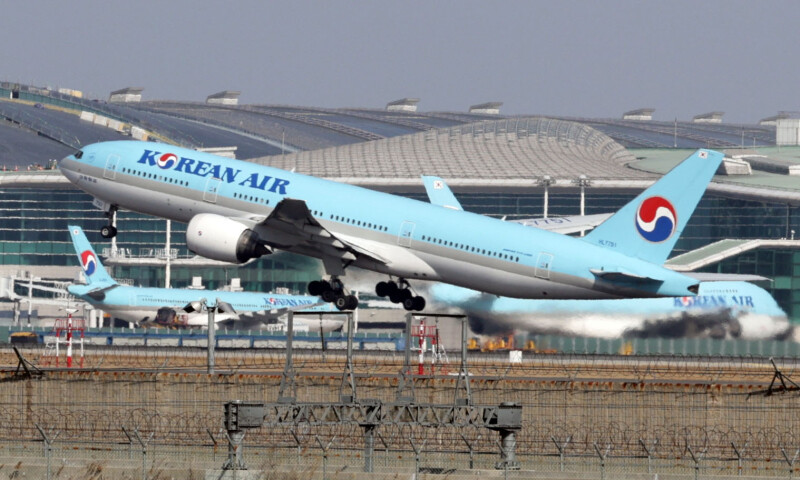
Hanjin Group's holding entity, Hanjin KAL, is under intense scrutiny for its repeated escalation of executive compensation ceilings. This move comes on the heels of securing 800 billion won in public funds for the Asiana Airlines acquisition and navigating through significant management conflicts. Critics are now voicing concerns that the company's focus has shifted from "corporate value enhancement" to prioritizing lavish "salary celebrations" for Chairman Cho Won-tae and other executives.
Adding to the controversy, there's a noticeable surge in consumer grievances directed at Korean Air, a key subsidiary of the group. This increase in complaints is undermining the airline's stated ambition of becoming a "beloved airline" as it marks its 56th anniversary.
On March 26, Hanjin KAL is set to present a proposal at its annual general meeting to raise the cap on director compensation to 12 billion won. This represents a substantial 33.3% increase from the previous year's 9 billion won limit. It is worth noting that in 2023, the company had already increased this limit from 5 billion won to 9 billion won.
Hanjin Group justifies these increases by citing the potential expansion of the board's size due to the integration of Asiana Airlines. However, this explanation has been met with skepticism.
Furthermore, Hanjin KAL's dividend payout ratio remains significantly lower than pre-pandemic levels seen in 2019. Despite public declarations of enhancing shareholder value, the company's actions are being perceived as mere repetitions of existing policies.
The situation is further complicated by the fact that Hanjin KAL received 800 billion won in public funds from the Korea Development Bank in 2020 to facilitate the Asiana Airlines acquisition. The company's subsequent focus on increasing executive compensation, rather than prioritizing shareholder and industry benefits, has drawn sharp criticism.
Adding to the company's woes, consumer dissatisfaction with the service quality of Korean Air and its subsidiary, Jin Air, is on the rise. Data from the Korea Consumer Agency reveals a steady increase in consumer complaints.
This trend raises questions about Hanjin Group's commitment to its stated goals and its responsibility to both its shareholders and the public.
[Copyright (c) Global Economic Times. All Rights Reserved.]






























